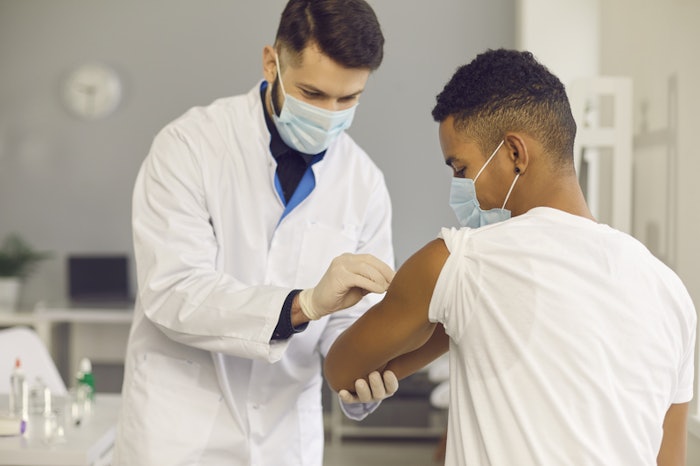
Eligo Bioscience has announced the issuance by the U.S. Patent and Trademark Office (USPTO) of patent #11,473,093 covering genetic engineering of Cutibacterium acnes to support therapeutic interventions in serious skin disorders.
The patent stems from the WO2022096596 patent family filed in 2020 and owned by Eligo Bioscience. It supports Eligo's program and work on other skin disorders such as skin cancer, alopecia and vitiligo, as well as a tool for potential vaccination and desensitization.
This program has an expected clinical proof of concept in moderate-to-severe acne patients set for 2024. The work may offer opportunities to leverage the skin's immune system for oncological, vaccination or desensitization applications, according to Eligo.
Eligo obtained preclinical proof of concept for its first program in moderate-to-severe acne vulgaris with the development of a modality capable of delivering a CRISPR system directly into C. acnes to kill only the strains of this species that are known to drive inflammation in the hair follicle.
C. acnes is a species of the skin microbiome that provides many health benefits for the host, such as maintenance of the skin barrier and protection against pathogens, according to Eligo. It resides in the hair follicle, in the vicinity of the host's immune and stem cells.
Using its gene editing platform, Eligo could potentially eliminate, modify or introduce new genes to the microbiome to express therapeutic proteins at the skin/host interface.
Related: Cellular Goods Details Findings on the Effects of Cannabinoid Skin Care
Xavier Duportet, Ph.D., CEO of Eligo Bioscience, commented: "Thanks to the quality of our science and the unmatched expertise of our team, we have been able to develop unique and highly differentiated tools to address skin disorders in record time. We are extremely proud of the pioneering work accomplished by the team, now recognized by the USPTO, and that offers Eligo a dominant position in the field of C. acnes genetic engineering and its vast therapeutic applications."










